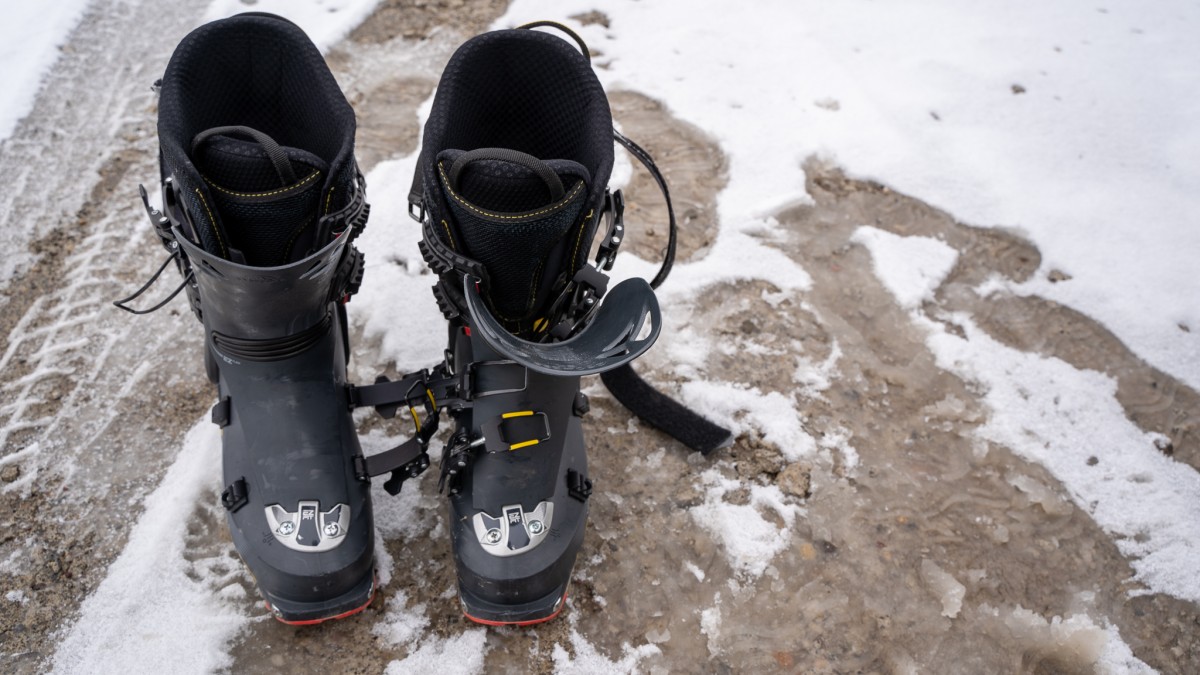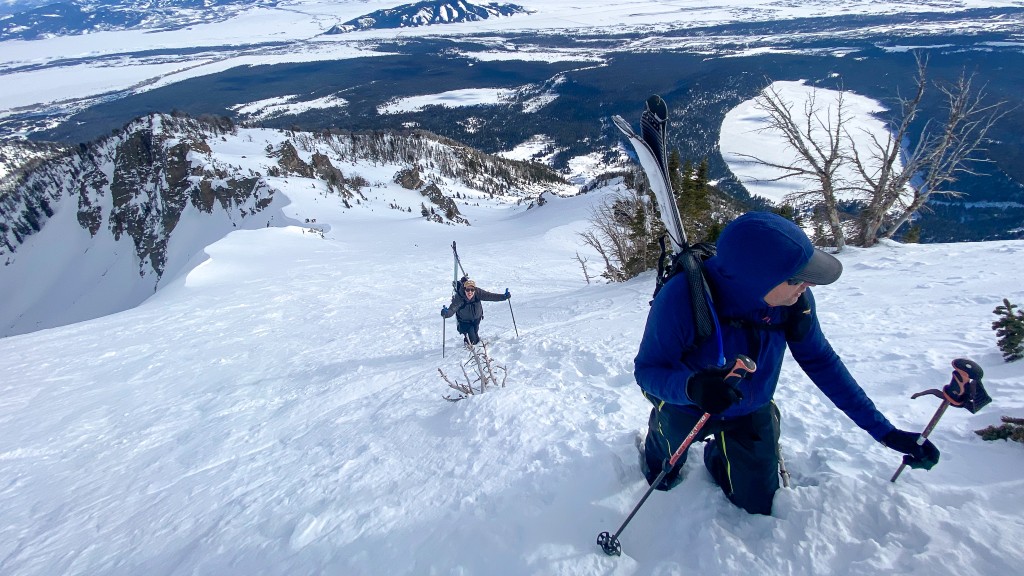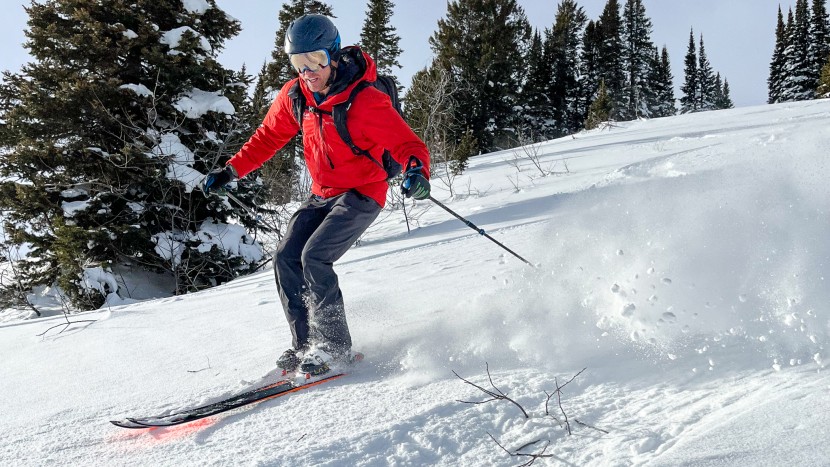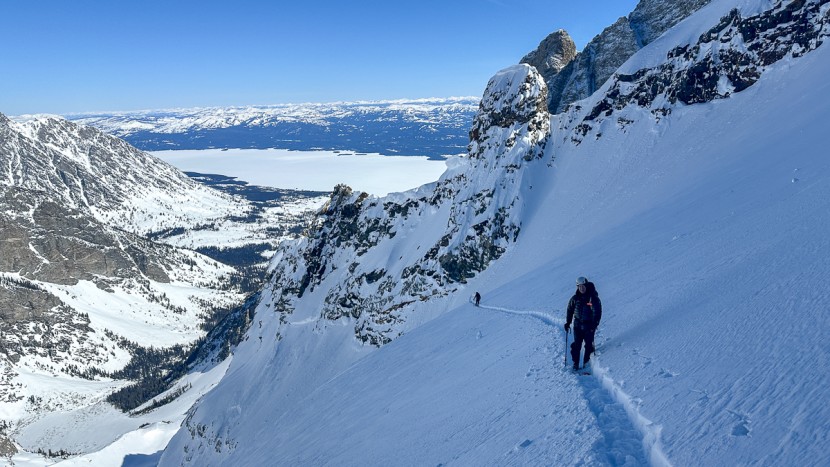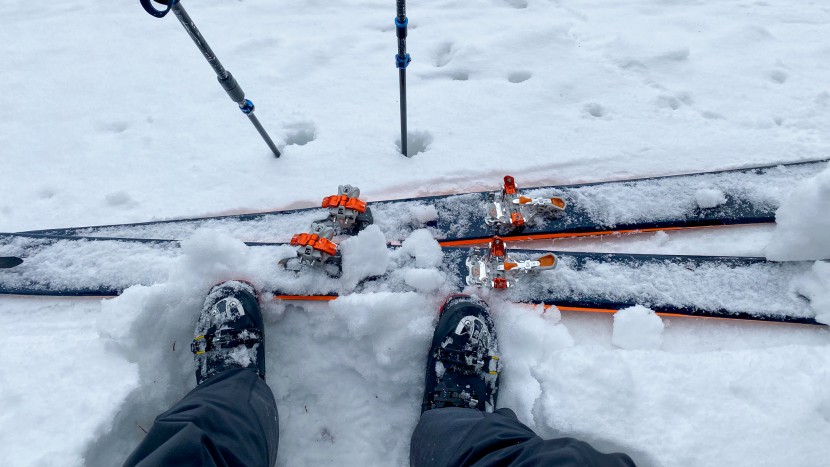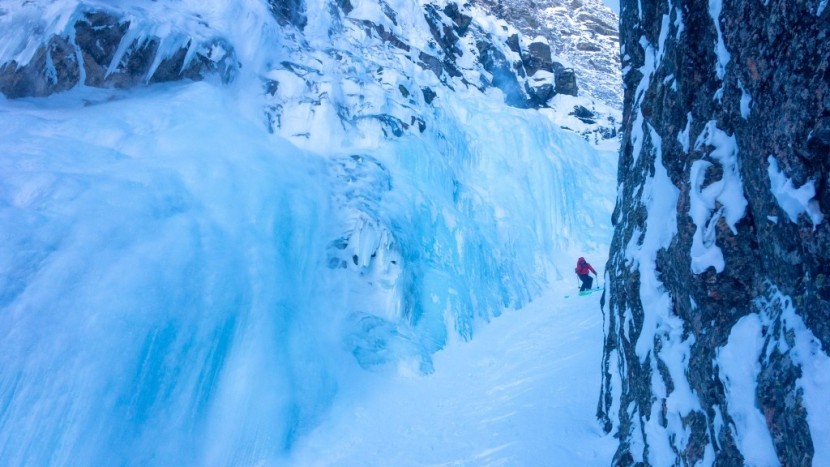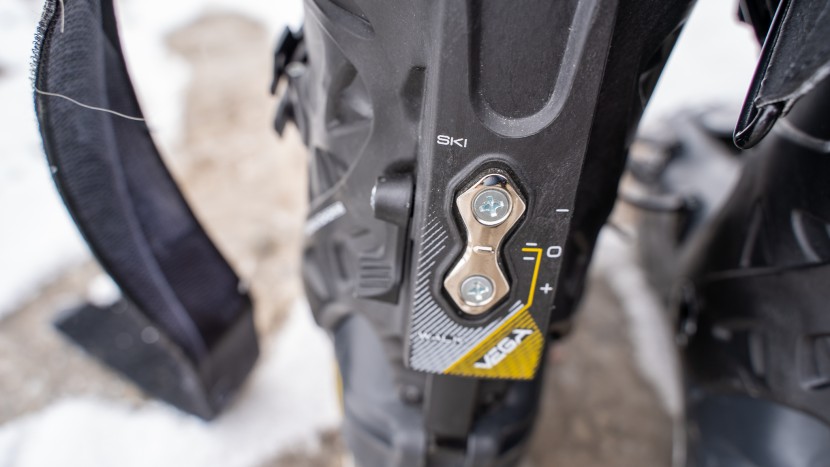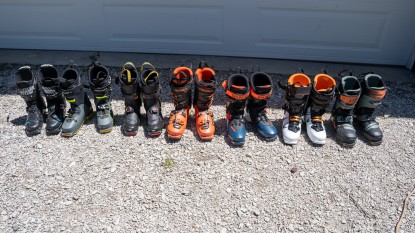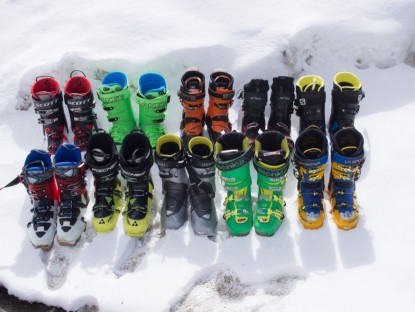Our Verdict
Compare to Similar Products
 This Product
La Sportiva Vega | |||||
|---|---|---|---|---|---|
| Awards | Best Bang for the Buck | Best All-Around Backcountry Ski Boot | Best Lightweight Backcountry Ski Boot | ||
| Price | $699 List $524.25 at Backcountry | $899.99 at Evo Compare at 4 sellers | $549.99 at Amazon Compare at 4 sellers | $639.96 at Evo | $619.96 at Amazon Compare at 2 sellers |
Overall Score  |
|||||
| Star Rating | |||||
| Bottom Line | Other boots edged this one out of our highest award, but it should definitely be considered for its well-priced value | Whether a newcomer adjusting from the resort or a seasoned expert gunning for 100+ backcountry days a season, this is the most well-rounded AT boot available | Well-balanced performance with a fit that favors comfort and accommodates average to high-volume feet | A ski boot that approaches perfection but is hindered by missing the mark on a few key functional points doesn't make it there We want it to fit narrower and have a "one move" transition | This is a well-balanced boot for high-volume, high-tempo ski touring and ski mountaineering |
| Rating Categories | La Sportiva Vega | Tecnica Zero G Tour... | Scarpa Maestrale RS | Salomon S/Lab MTN S... | Scarpa F1 XT |
| Downhill Performance (35%) | |||||
| Uphill Performance (20%) | |||||
| Weight (20%) | |||||
| Comfort and Fit (10%) | |||||
| Warmth (10%) | |||||
| Ease of Use (5%) | |||||
| Specifications | La Sportiva Vega | Tecnica Zero G Tour... | Scarpa Maestrale RS | Salomon S/Lab MTN S... | Scarpa F1 XT |
| Weight per Pair (Size 26.5) | 6 lbs 8 oz | 6 lbs 6 oz | 5 lbs 11 oz | 5 lbs 3 oz | 4 lbs 12 oz |
| Binding Compatibility? | Tech and DIN AT | MNC, Tech | MNC, Tech | Tech only | Tech only |
| Measured Range of Motion (degrees) | 60° | 98° | 76° | 75° | 108° |
| Manufacturer Stated Last Width | 102.5 mm | 99 mm | 102 mm | 99 mm | 100 mm |
| Weight of One Complete Boot, No Insole | 1473 g | 1445 g | 1286 g | 1180 g | 1076 g |
| Weight of One Boot Shell | 1220 g | 1212 g | 1045 g | 963 g | 872 g |
| Weight of One Stock Liner, No Footbed | 253 g | 233 g | 241 g | 217 g | 204 g |
| Stated Flex Index | 115 | 130 | 125 | Not Listed | Not Listed |
| Liner Design | Tongue | Tongue | Tongue | Tongue | Tongue |
| Shell Material | Grilamid | Grilamid | Grilamid | Ultramid | Grilamid |
Our Analysis and Test Results
In recent years, folks have had only a few viable choices for sturdy human-powered touring ski boots. The La Sportiva Vega jumps right in the ring by offering performance that matches or exceeds any other boot on the market. It is a four-buckle, “tongue-style” ski boot designed at a reasonable weight. Skiers of all abilities will find the Vega to serve their needs across any sort of terrain. If they fit you well, choose the Vega without any reservations.
Downhill Performance
The downhill performance of a ski boot, after proper fitting, is a function of overall stiffness in all major directions and the “progressiveness” of the forward flex. The Vega is rated, by the manufacturer, as having a flex rating of 115. For once, we feel that the manufacturer is underselling the stiffness. A 115-flex rating is relatively low, while our testing proved them to be stiffer than any direct competitors.
The flex pattern of the Vega is useful and functional. It's not perfect, but it's progressive and gentle, especially for a “tongue-style” boot. As you press your shins forward against the upper cuff of the Vega, it gives easily at first, and in a sort of “step-by-step” fashion, ramps up to eventually block all forward ankle flexion. We wish it were a touch smoother, but only a few boots with three-piece shells currently offer a more progressive forward flex than the Vega.
Uphill Performance
La Sportiva equips the Vega with a cuff that provides a wide range of motion and reasonable friction within that range. Like many traditionally constructed tongue-style boots, the friction within the range of motion will loosen up with time.
The friction felt in the cuff will also depend on what liners you put in them. The stock liner is relatively flexible, while virtually any upgraded liner is bound to be stiffer. This will inhibit, at least a little bit, the touring efficiency of the Vega. (This point holds for all touring boots.)
Weight
We weighed our test pair at 1473 grams for one boot (sans insole of any kind), which works out to 6.5 pounds for the pair. Of that mass, for one boot, the liner weighs 253 grams, and the shell weighs 1220 grams.
These weight numbers are competitive with any set of boots that has achieved wide acclaim in the last five years. At this weight, few boots tour as well, and fewer ski as well. The Vega hits that “sweet spot” – you could certainly go lighter to gain efficiency on the uphill, but downhill performance will quickly diminish by shaving even 100 grams.
Comfort and Fit
The toe box on the Vega is roomy, the midfoot is held securely (and can be modulated by buckles), and the heel pocket cradles without squeezing. We would call the fit “perfectly neutral,” and no one on our test team reported any discomfort. The only potential problem area is over the mid-foot and arch. Like other La Sportiva ski boots, this area is snug. If it is too tight for you, let us remind you that there are many DIY solutions that easily remedy this type of problem.
La Sportiva claims a 102.5 millimeter last, yet it doesn't feel particularly wide. We tested other boots with a similar last width, and team members with feet on the narrow side of average tended to wobble around a bit. Somehow, the Vega manages to leave some extra room while still securely holding the average foot.
Warmth
How warm the Vega feels will largely depend on how you fit it, but that's true of most boots. What we can compare is the materials and their impact on your warmth. The shell of the Vega is relatively thick and protective, which inherently provides a bit of extra insulation.
On the other hand, the liner is fairly prone to “packing out”. It will be thick and warm at first but rapidly lose both support and insulation value. Upgrade to a liner with stiffer foam, and you will certainly get better insulation and improved downhill ski performance. However, as we noted above, touring efficiency will suffer slightly.
Ease of Use
To assess this metric, we consider “tangibles” like transitions, getting in and out of your boots, binding and crampon compatibility, and traction for hiking. As far as compatibility and traction are concerned, there is nothing remarkable about the Vega – you can match them with most crampons, and they scramble as well as most other touring boots.
We also appreciate that the shell and buckle arrangement is pretty darn “typical”. Getting in and out and making transitions doesn't require any weird moves or manipulating any very small parts. The one weird usability issue – and this is a bigger deal for testers switching among boots than it is for the end user – is that the touring mode lever in the back of the shell is “upside down.” Common convention is that the ski/walk mode flips down for the downhill and up for the uphill, but this level is backward.
Should You Buy the La Sportiva Vega?
These are well-tuned, all-around backcountry ski boots suitable for users across the spectrum of skiing ability. Only specialized, discerning users will want something lighter for the uphill or heavier for the downhill. However, those same shoppers will also likely want a do-it-all boot like the Vega that strikes a nice balance of the two. The particularly low price – relative to the current market for AT boots – is also enticing for any bargain hunter.
What Other Backcountry Ski Boots Should You Consider?
This is purely anecdotal, but we have observed that a huge percentage of dedicated backcountry skiers in recent years use either the Tecnica Zero G Tour Pro or the Scarpa Maestrale RS. When our lead reviewer is asked for boot advice out in the real world, he has long narrowed his recommendations to these two boots. The La Sportiva Vega earns its place right alongside these other two big dogs, especially given the price point. Instead of “Try them both on and get the one that fits,” he's updated his advice: “Try them all on and choose the one that fits best. If two fit well, choose the cheaper one.”


